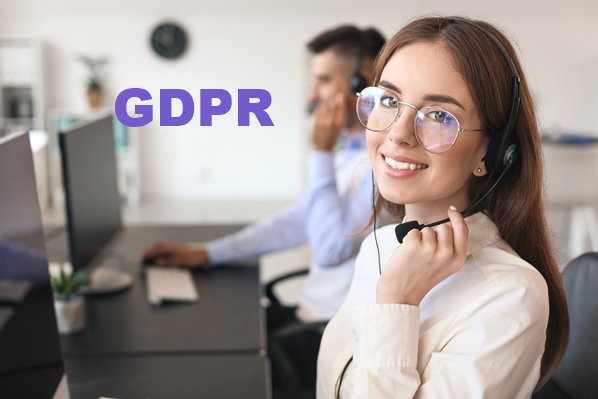
Understanding and complying with data protection laws is paramount, especially for businesses engaging in call recording.
The introduction of the General Data Protection Regulation (GDPR) in May 2018 marked a significant shift toward protecting personal data privacy within the European Union (EU). But what does this mean for organizations that record calls?
What Is GDPR?
Before we get into the specifics of call recording, it’s important to grasp the essence of GDPR. The GDPR is a comprehensive data protection law that imposes strict guidelines on how personal data is collected, processed, stored, and shared within the EU and the European Economic Area (EEA). It aims to give individuals more control over their personal data while also leveling the playing field for businesses.
The Foundation of Call Recording under GDPR
Under GDPR, call recording is considered a form of data processing, meaning it requires a legal basis to be justified. There are six lawful bases for processing data under GDPR, but when it comes to call recording, the most relevant are typically:
- Consent: The individual has given clear consent for their personal data to be processed for a specific purpose.
- Contractual necessity: The processing is necessary for the performance of a contract with the data subject or to take steps to enter into a contract.
- Legal obligation: The processing is necessary to comply with a legal obligation.
- Vital interests: Processing is necessary to protect someone’s life.
- Public task: The processing is necessary to perform a task in the public interest or official functions, with a clear basis in law.
- Legitimate interests: The processing is necessary for the legitimate interests of the data controller or a third party, unless overridden by the interests, rights, or freedoms of the data subject.
For businesses to record calls legally under GDPR, they must ascertain and document which of these lawful bases applies to their situation and be prepared to explain this clearly to those affected.

Key Rules of Call Recording under GDPR
- Informing Participants: Callers must be informed that their call is being recorded. Businesses need to clearly communicate the purpose of the recording and provide the option to opt-out if the basis of the recording is consent.
- Data Minimization: Only the personal data necessary for the specified purposes should be recorded. This ties in with the GDPR’s principle of data minimization.
- Data Security: Adequate security measures must be in place to protect the recorded calls, which can contain sensitive data. This includes encryption, access controls, etc.
- Retention Policy: GDPR requires organizations to only keep personal data for as long as necessary. Companies must have clear data retention policies for call recordings and stick to them.
- Data Subject Rights: Individuals whose calls are recorded have various rights under GDPR, including access to data, correction, deletion, and portability.
- Documentation and Compliance: It’s essential to document the chosen lawful basis for call recording, inform the data protection authority if necessary, and ensure all processing complies with GDPR.
Using Call Recordings Responsibly
Given the potential risks and the hefty fines for non-compliance, responsible usage of call recordings is more than just a legal obligation—it should be a core business ethic. Implementing stringent data protection practices ensures not only adherence to GDPR but also enhances business reputation and consumer trust.
Navigating the depths of GDPR can be challenging, but understanding the impact on call recording and adapting accordingly is indispensable. Protecting personal data is not just a regulatory matter but a reflection of an organization’s integrity and respect for individual rights.




